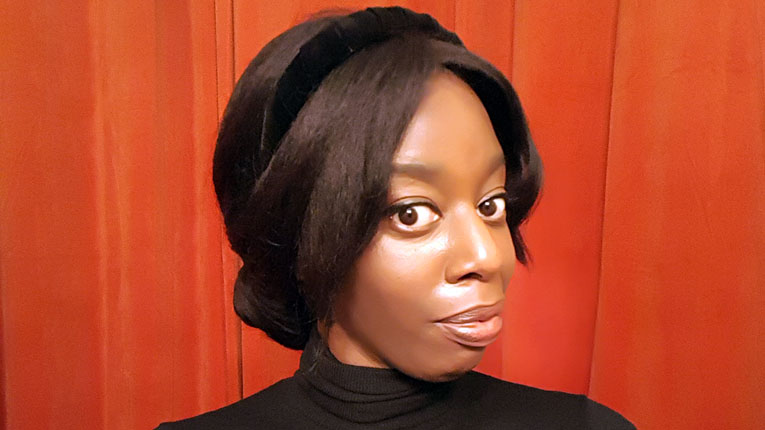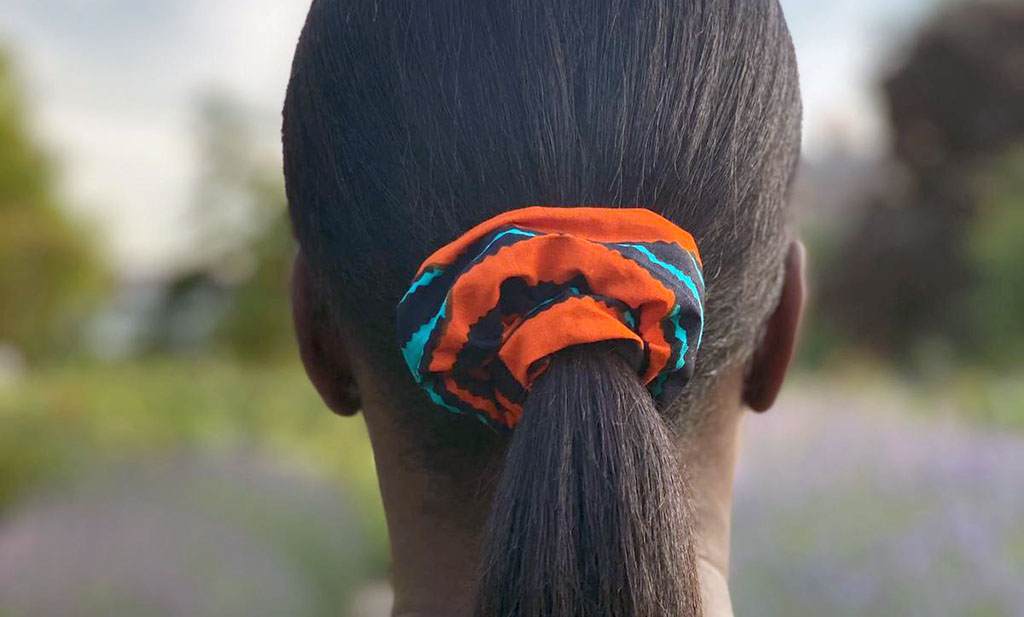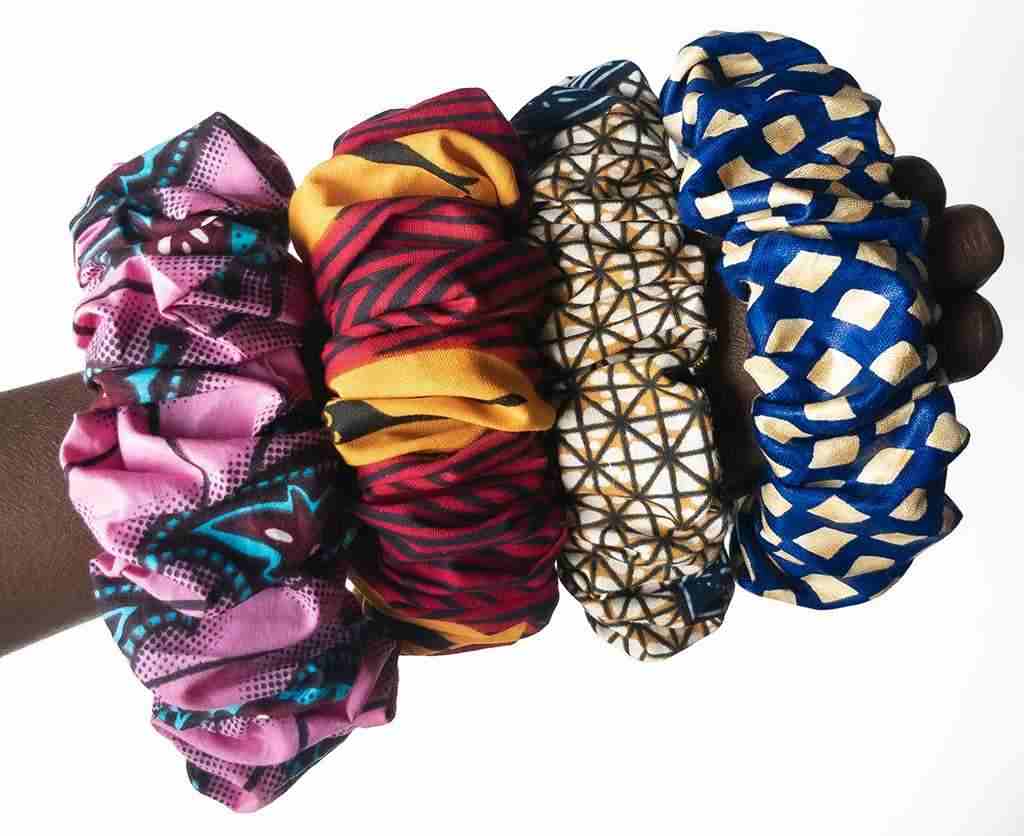Adanma Wokoh: 'Going alone gives you this oomph to keep going'

Posted: Thu 4th Feb 2021
The Enterprise Nation community is fantastically diverse. Our 30,000+ members come from every conceivable background, and their paths to small business success are often underpinned by some pretty inspiring stories.
We invited London-based fashion entrepreneur Adanma Wokoh to share hers. Encouraged by her parents to "always have a few plates spinning", Adanma has always been fiercely entrepreneurial - but it wasn't until 2020, when she lost her full-time job, that her side hustle became a front-and-centre hustle.
In a very honest chat, Adanma told us about the impact of the Black Lives Matter movement, her fear of being perceived as 'niche', and what it's like to run a successful start-up without a business plan.
Adanma, I know you've got a really interesting entrepreneurial backstory…
"My parents are Nigerian, and my dad is from the Igbo tribe. Typically, Igbo people are very entrepreneurial. I grew up with this mentality that you should always have a few plates spinning.
"My first business came almost by accident. I started designing patterns and ended up developing a kidswear range, which I started selling at markets across London. Shortly afterwards my sister went to Senegal on holiday. She found really cute kids' pieces made from African print and thought I could sell them on my stalls.
"So that's what I did. They made their debut at a school fete. People rushed the store. I literally sold out. I soon started doing country shows, festivals and more markets but it was difficult because, when you start and grow a business this way, there isn't a business plan. It was more a case of working out how to get the stuff made abroad and brought back over here. By this point I was incorporating my own designs and working with a seamstress - on another continent!
"This teaches you a lot. I got to a point where I realised I couldn't transition online because I didn't have consistent sizing. My range worked really well at markets and festivals, because parents could hold up the clothes to see if they'd fit their children. So, for the second and third batches, we bought commercial patterns that we adapted.
"This worked well, but it created additional challenges - like the amount of stock I had to photograph. It's not easy when you're a one-man band!"
How did you manage the sheer amount of work?
"To be honest, my enthusiasm went a bit. By 2019 I was doing one big show and a few mini festivals a year.
"The next real pivot came in May 2020. I had my day job, and I think part of the thing when you have a side hustle is having the time to focus on it properly. But in May I was told that my position was ending.

"When you make kids clothes you often have surplus fabric. I decided to make a few headbands - I had this idea that I was going to make some scrunchies and put them on an Etsy shop. I watched Greed last year and it had a big effect on me - I didn't want to add to the problem of throwaway garments, nor of garment workers being exploited. And I think people appreciate things that are handmade, and which have a longer shelf life.
"The real turning point came the week my job ended. Being in a position where you have nothing coming in is really interesting, because you suddenly have this do or die mentality where you just have to thrive. That itself can be a catalyst to make you more creative.
"And so, Native Mix - which I effectively incorporated into my own studio - was born."
May 2020 was certainly an interesting time to start a business…
"It was around the same time that the Black Lives Matter movement really started to take hold. Suddenly, a lot of people wanted to promote black-owned businesses. If I'm quite frank, I think previously I had shied away from emphasising the 'ethnic' part of my business, because there was a fear that people might not want to buy. I worried about alienating the customer.
"The name 'Native Mix' came from my love of travel and fabrics. I love not just African fabric, but Indian fabric, Italian linen, silks. It's a real mix of everything. The 'native' bit is almost cultural appropriation done nicely, I suppose! I'm celebrating my own culture while reusing fabrics that would otherwise end up in landfill."
How has Native Mix been received?
"I think what's attractive to people is that when you buy something limited in quantity, you're getting something special that you won't be able to find on the high street.
"This has really resonated with people, as has the whole female empowerment, black-owned business, handmade aspect. Everyone has had more time over the last few months to stop and reassess how much they're buying. There's been a backlash to mass consumerism.
"From talking to my customers, I know they're being more strategic about what they're purchasing. They want to support small businesses. They also want to buy things that are a bit more unique, which is why I think Native Mix has started to do well. I've had a few big pushes, like being featured in Stylist magazine. And then a well-known London blogger and influencer promoted my business and it all went a bit crazy."
I imagine in a good way?
"Suddenly I was in this position of having open space - not being in a full-time job anymore - to fulfil 200 orders in 10 days. It was really exciting, but scary at the same time. I quickly had to come up with a fulfilment strategy - my mum was on packing duty, my sister went to the Post Office twice every day, and I was sewing like a madman.

"I really look back on that period and smile, because even though it was exhausting, when you're doing it on your own, and the feedback starts to come in from customers - and they tell their friends that they really like your stuff - it gives you this oomph to keep going."
Are you still concerned about emphasising the 'ethnic' side of your business?
"There are two things that are really hard to get: investment and press coverage. I've always felt it would be harder to promote an 'ethnic' item, whereas now, because of what's happened, people are trying to make sure that the space is open. You've got a lot of white women giving up giving their platform to black women, for example. Looking back, maybe I didn't release certain items because I thought they were too niche."
Tell me where you and Native Mix are at now…
"I knew I'd have to get a full-time job again because sales aren't going to remain high forever. You might have peaks, which are great - and there's lots to be learned from them - but let's be real. All retail businesses are feeling it right now, whether online or in shops.
"Having a community of people being so tuned in was really helpful in those first couple of months, when obviously we were all in lockdown. This feeling we have now - that restrictions are normal and will be around for at least a few more weeks - hadn't really set in.
"Lots of people were working full-time from home, so they had fewer outgoings and probably a bit more disposable income. I know that things took a turn for the worse for many, but quite a few people were in this position initially. And because they had fewer things to distract themselves with, lots turned to retail therapy.
"There was a mini peak around November with the second lockdown as people completed their Christmas shopping early. What I hope to benefit from longer term is people looking to buy gifts that are a bit more personal. A lot of the purchases I saw coming through before Christmas were for people the customer couldn't see.
"One of the things that previously held me back from starting a business was money. COVID didn't help, but then it kind of did. I knew my job was ending. That was a negative thing. But because we were about to lock down, I knew I'd have a few months of not spending much money. This gave me a bit of capital to start Native Mix, and my hope was that I'd start to make enough sales to keep me going."
You started using Enterprise Nation when you launched Native Mix. How has it helped?
"The idea that here is a place to find all you need to start your own business - and support other small business owners - was really interesting to me.
"I love reading about other entrepreneurs, so that's part of the attraction - being inspired by, and learning from, other people who've started a business.
"Whenever I see a business that's done really well, I always want to know how they got started and how they achieved success, and what I can take from their journey."
Do you have a start-up story worth sharing? Are you a small business owner looking for support and inspiration? Join Enterprise Nation for free today!
Get business support right to your inbox
Subscribe to our newsletter to receive business tips, learn about new funding programmes, join upcoming events, take e-learning courses, and more.
Start your business journey today
Take the first step to successfully starting and growing your business.
Join for free
